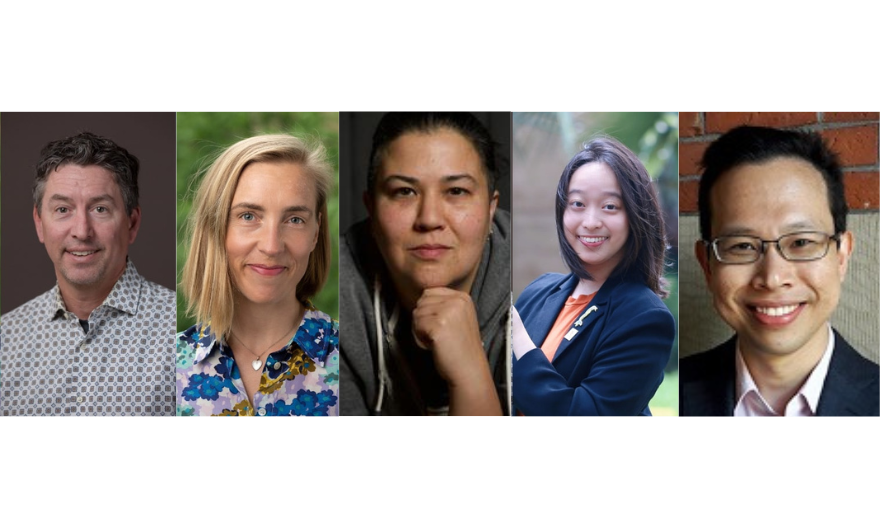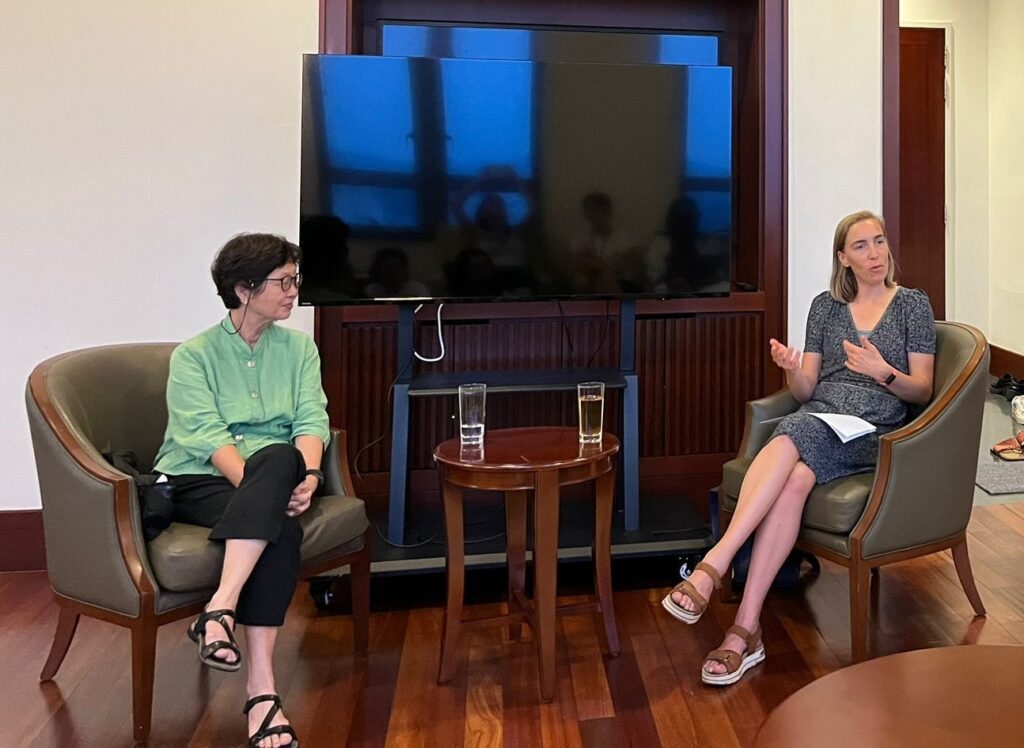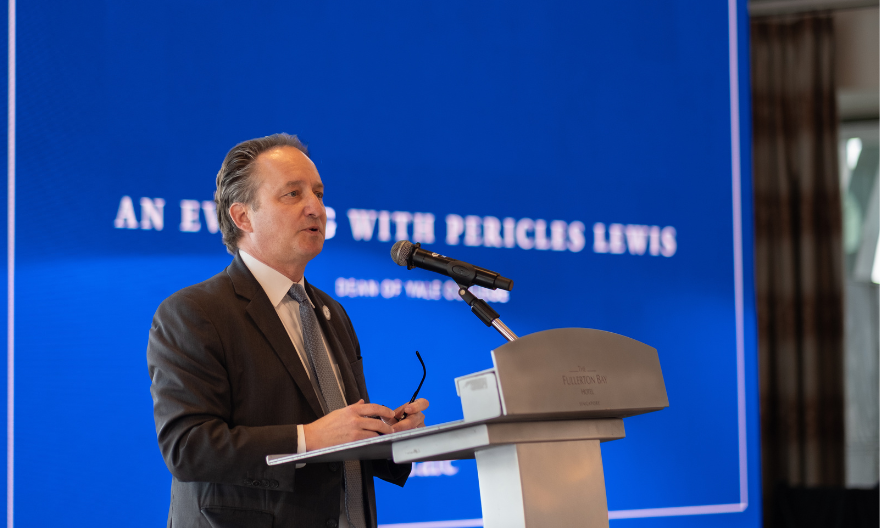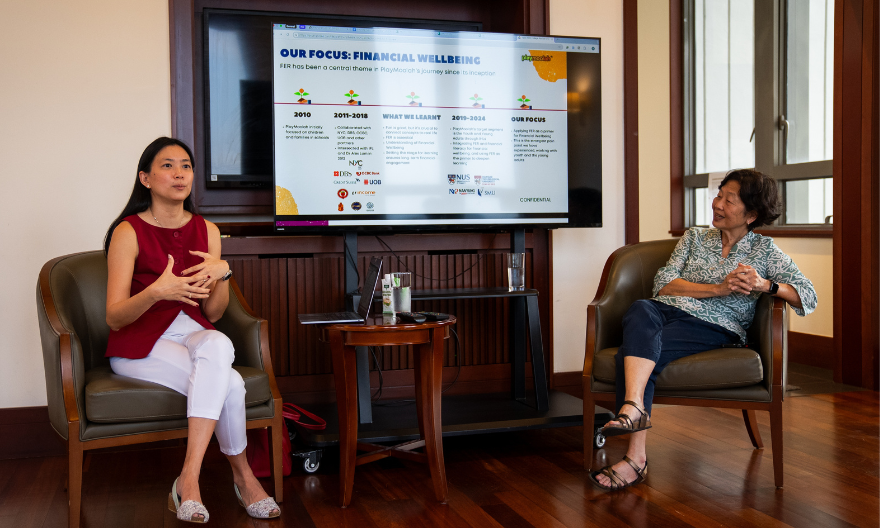This semester’s Rector’s Teas showcase the diversity of the liberal arts
Topics discussed at the talks ranged from peacekeeping missions to the climate crisis.
A hallmark tradition of Yale-NUS, Rector’s Teas are a series of talks for its community that seek to bring learning beyond the classroom. This semester, Rector and Associate Professor (Life Sciences) Khoo Hoon Eng invited a wide range of speakers to discuss a plethora of topics relating to their field of study from 29 August to 15 November.
The invited speakers include visiting faculty members Professor of Social Sciences (Environmental Studies) Max Boykoff from University of Colorado (Boulder), Associate Professor of Social Sciences (Anthropology) Louisa Lombard from Yale University, former postdoctoral teaching fellow Dr Diana Chester and Associate Professor Damien Ricketson from the University of Sydney, Yale-NUS’ first alumni faculty member Lecturer of Humanities (Philosophy) Sherice Ngaserin, and Assistant Professor (History and Religious Studies) Jack Meng-Tat Chia from the National University of Singapore.

While Rector Khoo did not curate a specific theme for the teas, she sought out the diversity of topics represented in this semester’s line up. “If I could find a theme, it would be the range of liberal arts interests that our College has,” she shared.
The topics for this semester’s Rector’s Teas ranged from media coverage of climate change, the future of peacekeeping in the African continent, to using sound to “listen to the Earth”, and understanding the metaphysics of gender and the history of Chinese Buddhist funeral rites in Singapore.
Each talk at the Cendana Rectors’ Commons was packed with eager students and the occasional faculty member. A unique feature of the Rectors’ Teas was the intimate setting it provided for speakers to share their knowledge and personal experiences, whilst organically engaging with any questions that participants might have along the way.
This atmosphere was undoubtedly present at Assoc Prof Lombard’s Tea session on 5 September. Having spent 13 years conducting fieldwork in the Central African Republic (CAR) and working with peacekeeping missions deployed to the state, Assoc Prof Lombard’s work delves into the role of peacekeepers. As a supposed neutral party, peacekeepers are critical in dealing with conflicts and building relationships with impacted communities.
Assoc Prof Lombard’s research on Rwanda peacekeepers is part of a larger project that seeks to understand the future of peacekeeping missions and alternative military deployments to manage conflict zones. It builds on her prior research, which included published works such as State of Rebellion: Violence and Intervention in the Central African Republic, and Hunting Game: Raiding Politics in the Central African Republic.

During the session, Assoc Prof Lombard recounted listening to a peacekeeper speak at a conference during her undergraduate career, which inspired her decision to pursue anthropological field work in the region, and eventually conduct studies on peacekeeping in the African continent. She also fielded questions from interested attendees on the ethical ramifications of African peacekeeping missions, and spoke about expanding the perception of peacekeeping through her ethnographic fieldwork. “It was an honour to present my research at a Rector’s Tea. It made me proud to be teaching at an institution where the students and faculty come out in such great numbers to hear about a colleague’s work,” Assoc Prof Lombard shared after the session, noting the wide range of insightful questions attendees brought to the conversation.
“Despite being an Anthropology major, I’ve never taken a course in political anthropology, so I attended Assoc Prof Lombard’s talk to find out more about her research and how anthropology could shed light on the political [sphere],” said attendee Ashley Chin (Class of 2024). “I was really intrigued by Assoc Prof Lombard’s fieldwork on the ethical dilemmas that United Nations peacekeepers face in the Central African Republic.”
Reflecting on some takeaways of the talk, Ashley said, “As violence ensues around the world, I left the talk thinking about how we might improve how institutions broker peace.”
An earlier session of the Rector’s Teas this semester featured Professor of Social Sciences (Environmental Studies) Max Boykoff who spoke about developing effective methods of environmental communication relating to issues like climate change reporting by the media. He shared the creative climate communication experiments that he had been working on, including “Inside the Greenhouse”, a project at his home university which used creative expression and storytelling to connect with a wider audience about the impacts of pressing issues like climate change. He also shared some insights on contributing to the Sixth Assessment Report of the Intergovernmental Panel on Climate Change as a specialist on global communication of environmental crises.
In another session by Dr Diana Chester and Assoc Prof Damien Ricketson of the University of Sydney, students learnt more about ‘Listening to the Earth’, a collaborative research project funded through the Sydney Environment Institute that explored listening, connecting, and understanding our changing environment through the medium of sound.
In the upcoming sessions of the Rector’s Tea, Dr Ngaserin, the first Yale-NUS alumna to return as a faculty, will speak about the concepts of gender and South Asian Buddhist philosophical traditions while Asst Prof Chia from NUS will cover the history of Chinese Buddhist funeral rites in Singapore.
Rector Khoo is looking forward to preparing a new series of Rector’s Teas in the next semester, likely on the arts ecosystem in Singapore. Rector’s Teas continue to provide space for interested students, alumni and faculty to immerse themselves in the research of invited speakers, while exploring topics outside the confines of the classroom.




